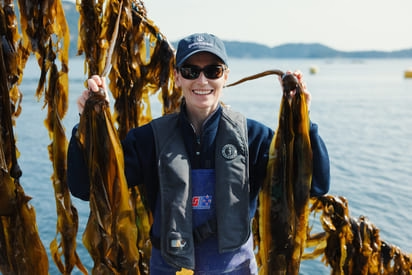

Are You Ready For the Plastic Free July?

Plastic Free July is an award-winning campaign that ‘aims to raise awareness of the problems with single-use disposable plastic and challenges people to do something about it’.
In an effort to showcase just how much plastic we all use, Plastic Free July encourages people to avoid single-use disposable plastic throughout the month of July. This includes things like plastic food packaging, water bottles, shopping bags, to-go cups and more.
Why Do We Care?
We care because plastic pollution is a HUGE problem. Plastic is a man-made product that does not naturally decompose. Unlike biodegradable materials that will gradually break down and return back into the land, plastic will not. Some plastic can take centuries to break down, and even then they’re mostly just degrading into smaller and smaller pieces, before becoming microplastics. This means that the plastic pollution we face today is not going to get any better unless we make an active commitment to intervene. And we need to.
Plastic pollution is having a devastating effect on our marine life and ecosystems. According to the United Nations, more than 8 million tonnes of plastic leak into the ocean every year. This is equal to dumping a garbage truck full of plastic into the ocean every minute!
This isn’t just making the ocean ‘dirty’, it is literally killing our marine life. Over a million seabirds die every year from ingesting plastic debris and more than 100,000 marine mammals suffer a similar fate. Even worse, the UN believes that there will be more plastic in the ocean than fish by 2050 if we continue to consume single-use plastics at this rate.
What Else?
It’s not just the sad fate of a sea turtle mistaking plastic bags for Jellyfish. The plastic ingested by sea creatures and other animals is making its way up the food chain… all the way to us.
A growing group of academics, scientists and governments are now viewing plastic pollution as a human health hazard in addition to more obvious environmental implications. It’s estimated that, on average, a person consumes between 74,0000 and 121,000 microplastic particles annually. Bottled water has been labelled as the worst culprit when it comes to human consumption of microplastics with teabags and baby bottles also being problematic.
Ok, You’ve Convinced Me. How Do I Get Involved?
It may seem daunting, and that is because it is extremely hard to avoid plastic in our current society. We have become dependent on plastic, and giving it up for a month can be a great eye-opening experience to see how much plastic you truly use…..and you are only one person! Think about the whole world! Find out a few ways you can reduce your plastic use in our previous blog post: Easy Tips to Reduce Single-Use Plastic.
We’re encouraging everyone in the Greenspark community to switch their impacts to plastic for the month of July. So for every subscriber or review they gain or sale they make, they will rescue ocean-bound plastic from the environment.
If you are looking for a way to rescue plastic before it hits our oceans, you can support The Plastic Bank every day by joining Greenspark. Want to know more? Book a call with one of our friendly team members today.



.avif)
%20(1).avif)







